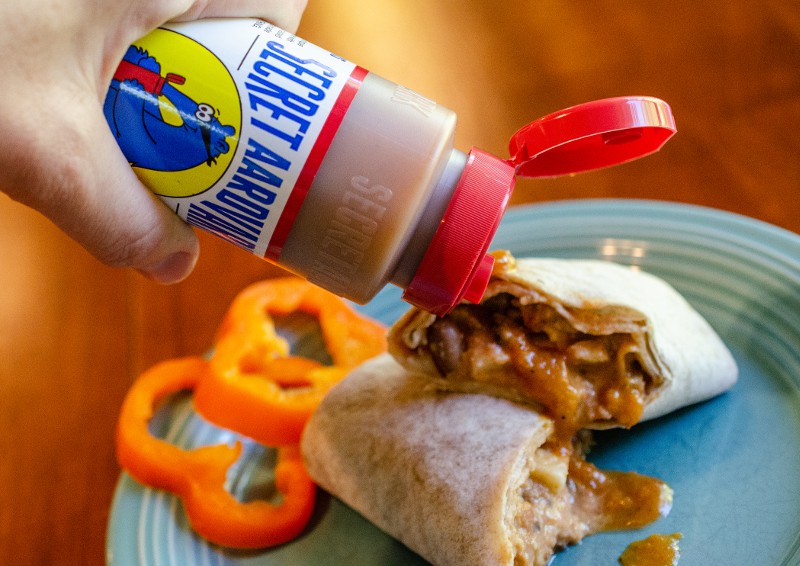
Is Hot Sauce Good for You?
Is hot sauce an indulgence, a health food, or both?
As a fan of hot sauce, at some point, you’ve probably wondered … is this stuff good for me? Turns out, it might be!
We’re definitely not telling you to ditch your vitamins and your doctor (in fact, please take your vitamins and see your doctor!) and this article isn’t medical advice, but several peer-reviewed studies have shown that adding some heat to your meals can help with weight loss, diabetes, blood pressure, and more.
Antioxidant and Anti-inflammatory
One of the most accepted health benefits of hot sauce (and spicy food in general) is its antioxidant and anti-inflammatory properties as well as bioactive compounds such as flavonoids, phenolic acids, carotenoids, and vitamins C, E, and A. Hot sauce by its nature is a powerhouse of healthy eating. That’s not surprising, considering that hot sauce is made from natural ingredients like peppers!
But what are antioxidants and what do they do? In a few words, antioxidants fight damage caused by free radicals, which are unstable molecules that cause cell damage. This makes them good for cancer, diabetes, and heart disease (we’ll hit on those more later).
That also makes hot sauce good for inflammation. That really comes in handy when you’re feeling sore after a rough roller derby match!
While scientists aren’t 100% sure exactly how hot sauce reduces inflammation and other pain, but it might have to do with the endorphins released when we eat spicy food. When we eat something with capsaicin (the thing that makes hot sauce hot), our body actually thinks that we’ve been burned, which may cause swelling to go down, arthritis to lessen, toothaches to go away, and more.
Anticancer
First things first, we want to make it clear that hot sauce won’t cure cancer. However, studies in 2006 may have shown a link in the consumption of hot sauce may slow cancer growth when it was studied in relation to prostate cancer in mice. It basically destroyed cancer cells while keeping healthy cells intact, which would be revolutionary.
Unfortunately, capsaicin would have to be taken in extremely large quantities for humans to have the same effect. We’re talking levels of hot sauce consumption that would make the most hardcore hot sauce aficionado blush.
More recently, scientists in India were able to see exactly how capsaicin actually binds to the membranes of cancer cells and tears it apart. That’s the first step in finding a way to use capsaicin to treat cancer in humans.
So again, hot sauce won’t cure cancer quite yet, but it’s exciting research nonetheless!
Weight Loss and Lower Cholesterol
Just from a quick Google search, a lot of folks want to know if you can lose weight by using hot sauce. And the answer is…yeah, kinda.
The most obvious reason hot sauce can help you lose weight is that it’s a low-calorie way to add a lot of flavor to your meals. It’s a great thing to grab instead of salt, ranch, or barbeque sauce, all of which taste fantastic but can add a lot of calories, sodium, and sugar to your meals.
Anecdotally, hot sauce might also make people eat more slowly. After all, it’s a little harder to scarf down food when it’s spicy because you probably need to take breaks to sip on your beverage of choice.
But there’s also a lot more science behind hot sauce and weight loss. Research suggests that those who use hot sauce on their food generally stay fuller longer and that spicy food may boost metabolism. A 2013 study showed that capsaicin lowered cholesterol in hamsters. It also showed that capsaicin lowers a hormone that increases appetite and increases a hormone that suppresses appetite.
Of course, not all hot sauces are created equal. If you’re on a low-sodium diet, make sure your hot sauce of choice doesn’t have too much added salt (some popular hot sauces have 200mg of sodium per serving). Also, some hot sauces have more added sugar than you would think, so be sure to check your nutrition labels to make sure you’re choosing a healthier hot sauce if that’s a concern of yours.
Blood Pressure
We already know that capsaicin can lower your cholesterol, but a 2010 study suggests that hot sauce and other hot food can lower blood pressure. Apparently, this is related to the reason you feel happy, and maybe even high, when you have hot food.
As we mentioned earlier in this article, when you eat spicy food, your body thinks you’re actually in pain. When it comes to that happy feeling, it’s because of the release of endorphins. In the case of blood pressure, it causes the release of something called neuropeptide Y. This is a little technical for us, but several studies over the years related to neuropeptide Y show improved blood pressure improves when hot sauce and other spicy foods are consumed.
There are apparently other benefits of anything that aids the release of neuropeptide Y. It’s also known for reducing anxiety and stress, reducing constriction of blood vessels, can improve your circadian rhythm, and might even make you want to cut down on alcohol.
Heart Health
Possibly related to lower cholesterol and blood pressure, a report by The American Heart Association showed that “people who ate chili peppers regularly had a 26 percent relative reduction in cardiovascular mortality and 25 percent relative reduction in all-cause mortality” from a study of over half a million participants. Researchers aren’t exactly sure why spicy food helps out the old ticker, but numbers like that should be encouraging to lovers of spicy food!
Diabetes
Finally, hot sauce can help prevent and manage diabetes. A 2006 study showed that diabetes patients who had a spicy meal had more normalized insulin levels than those who “had a meal that did not contain much capsaicin.”
But how does that work? According to diabetesselfmanagement.com, “cayenne consumption may improve the sensitivity of tissues to insulin, and less insulin will be required to effectively move glucose from the blood to tissues.”
Ultimately, hot sauce is considered to be an overall healthy condiment. While it alone won’t cure cancer, diabetes, or high blood pressure, scientific studies suggest that it can show some health benefits overall, especially if you find a hot sauce that doesn’t have a lot of sodium or added sugar. So dump in on everything in good health!

